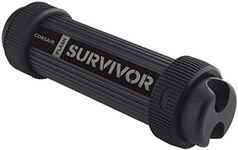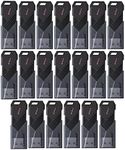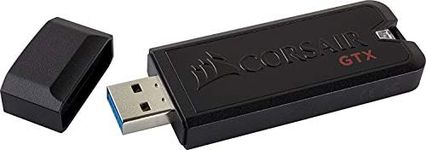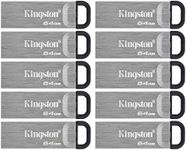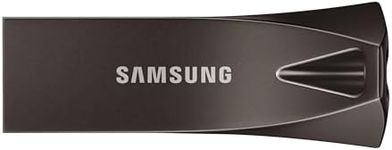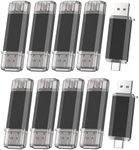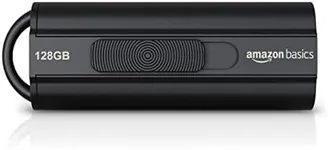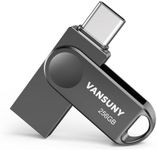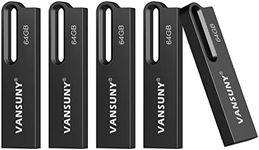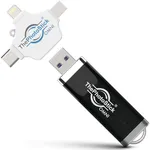Buying Guide for the Best Usb Flash Drives
When choosing a USB flash drive, it's important to consider several key specifications to ensure you get the best fit for your needs. USB flash drives come in various sizes, speeds, and features, and understanding these can help you make an informed decision. Here are the key specs to look at and how to navigate them.Storage CapacityStorage capacity refers to the amount of data a USB flash drive can hold. This is important because it determines how much information you can store on the drive. Capacities typically range from 4GB to 1TB. For basic document storage, a smaller capacity like 16GB or 32GB might be sufficient. For storing larger files like videos or extensive photo collections, consider 64GB, 128GB, or higher. Assess your storage needs based on the type and amount of data you plan to store.
USB VersionThe USB version indicates the data transfer speed and compatibility of the flash drive. Common versions include USB 2.0, USB 3.0, and USB 3.1. USB 2.0 is slower but widely compatible, making it suitable for basic tasks. USB 3.0 and 3.1 offer faster transfer speeds, which are beneficial for transferring large files quickly. If you frequently move large files or need faster performance, opt for USB 3.0 or higher. Ensure your device supports the USB version of the flash drive for optimal performance.
Physical Size and DesignThe physical size and design of a USB flash drive can affect its portability and ease of use. Some drives are very small and compact, making them easy to carry around, while others are larger and may offer additional features like ruggedness or waterproofing. Consider how and where you will use the drive. If you need something portable and easy to carry, a smaller design is ideal. For more rugged use, look for drives with protective casings.
Durability and Build QualityDurability and build quality refer to how well the USB flash drive can withstand physical wear and tear. This is important if you plan to carry the drive with you frequently or use it in various environments. Drives with metal casings or those labeled as shockproof, waterproof, or dustproof offer better protection. Choose a drive with good build quality if you need something that can handle rough use or if you want to ensure the longevity of your data storage.
Security FeaturesSecurity features on a USB flash drive can protect your data from unauthorized access. Some drives offer hardware encryption, password protection, or biometric security. These features are important if you store sensitive information. If data security is a priority for you, look for drives with built-in encryption and other security measures. For general use, basic password protection might be sufficient.
CompatibilityCompatibility refers to whether the USB flash drive can work with your devices. Most drives are compatible with a wide range of operating systems, including Windows, macOS, and Linux. However, some may have specific requirements or additional software for certain features. Ensure the drive you choose is compatible with your devices and operating systems to avoid any issues with data access or transfer.

